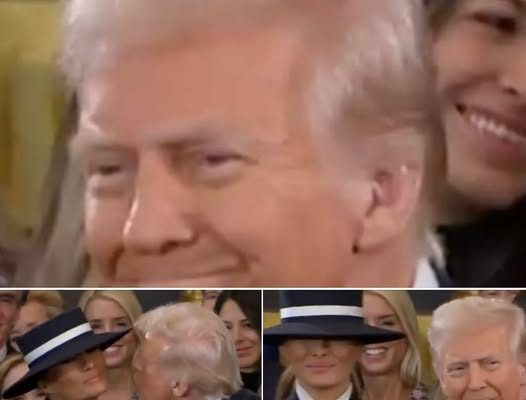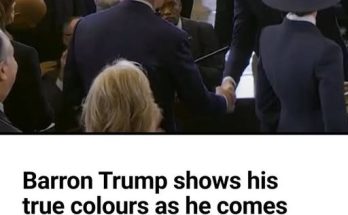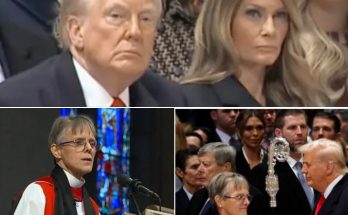The inauguration of Donald Trump for his second term as President of the United States was destined to provoke discussions, debates, and memorable moments. On January 20, 2025, audiences worldwide observed as Trump took the oath of office, marking the commencement of a new era in U.S. history. As is typical with significant events, the day was characterized by speculation, noteworthy incidents, and public reactions—one of which focused on a seemingly awkward exchange between Donald and Melania Trump.
In keeping with tradition, the inauguration commenced with a church service, symbolizing the transfer of power and the initiation of the new administration. Upon their arrival, cameras captured a moment between Donald and Melania that ignited widespread conversation. As Trump leaned in to kiss his wife, Melania subtly turned her face, redirecting the gesture to her cheek instead of her lips. This brief interaction quickly became a point of contention in online discussions, with some viewing it as a deliberate slight while others dismissed it as coincidental.
Body language expert Judi James provided her analysis of the exchange, offering insights into the couple’s public behavior. James characterized Trump’s demeanor at the event as “slow and alpha,” accompanied by a “mouth shrug smile” that conveyed a serious tone regarding his speech and the responsibilities of his second term. When Trump reached Melania, James noted that he gently took her hand in what appeared to be a romantic gesture, reminiscent of a moment typically seen during a wedding ceremony. However, the ensuing kiss—or the absence of one—added an element of intrigue. James remarked, “Melania leaned towards her husband to reciprocate but also turned her face to instigate a cheek kiss rather than the mouth variety.”
This subtle misalignment, which James referred to as a “heart-stopping moment,” was interpreted by some as indicative of a lack of harmony between the couple. Conversely, others viewed it as a fleeting and trivial gesture, exaggerated by public scrutiny.
Melania’s choice of attire during the inauguration sparked considerable debate. Her selection of a dark boater hat, which obscured her face, combined with a high-necked outfit, elicited a variety of responses on social media. While some individuals admired the elegance and sophistication of her look, others deemed it overly somber for such a festive occasion. Critics on social platforms referred to her appearance as “Dark Maga” and likened it to that of a “mob wife at a funeral.” Nevertheless, the First Lady’s fashion choices remained true to her established style—bold, intentional, and subject to diverse interpretations.
Speculation regarding Melania’s involvement during Trump’s second term has persisted. There are suggestions that she may not reside permanently in the White House, preferring instead to divide her time between Washington, D.C., and New York City, where their son, Barron, is currently pursuing his studies. Although Melania has not publicly confirmed her specific plans, her commitment to supporting her son while maintaining her independence has been a consistent theme in discussions about her role as First Lady.
In the meantime, Donald Trump’s inauguration speech was as ambitious and assertive as anticipated, filled with promises that resonated with his campaign messaging. Among his bold assertions, Trump vowed to confront immigration issues directly, pledging to initiate the largest deportation program in U.S. history. “I will rescue every city and town that has been invaded and conquered, and we will put these vicious and bloodthirsty criminals in jail, then kick them the hell out of our country as fast as possible,” he proclaimed.
Trump also committed to declassifying concealed government documents, including those pertaining to the assassinations of John F. Kennedy and Martin Luther King Jr., and suggested potential pardons for individuals involved in the January 6, 2021, Capitol riots. Furthermore, he expressed a desire to abolish birthright citizenship—a proposal that would encounter significant constitutional hurdles—and pledged to reduce federal spending.



